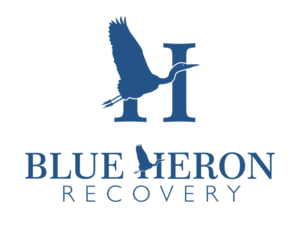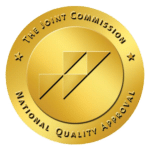Understanding Lexapro Withdrawal Symptoms
Navigating the journey off Lexapro, a commonly prescribed antidepressant, can introduce individuals to a spectrum of withdrawal symptoms that are as diverse as they are challenging.
Understanding these symptoms, their causes, and effective management strategies is crucial for anyone looking to transition off the medication safely.
This transition not only demands a cautious approach but also an informed one, equipped with knowledge about what to expect and how to mitigate the discomforts of withdrawal.
Counseling, lifestyle adjustments, and when necessary, the guidance of healthcare professionals, play pivotal roles in this process.
Continue reading to uncover vital insights into managing Lexapro withdrawal confidently and safely.
Identifying Lexapro Withdrawal Symptoms
Navigating through the maze of Lexapro withdrawal symptoms can be a daunting task, yet understanding what to expect can significantly demystify this process.
From physical discomforts that might catch you off guard to the psychological turmoil that often accompanies this phase, it’s crucial to arm yourself with knowledge.
Moreover, drawing a timeline of these symptoms unveils crucial insights into the journey towards recovery, highlighting the fact that duration and intensity of use can profoundly influence the severity of San Antonio Drug Rehab experiences.
As we delve deeper, keep in mind that each symptom narrates a part of the larger story of withdrawal, emphasizing the importance of preparation and support during this transition.
Common Physical Symptoms to Look Out For
Navigating the unsettling waters of Lexapro withdrawal at San Antonio Drug Rehab, I’ve learned the importance of recognizing the physical manifestations that may arise. These can range from flu-like symptoms, encompassing nausea, headaches, and dizziness, to more Intensive Outpatient Program experiences of fatigue and insomnia. The body, it seems, echoes the mind’s journey, signaling its protest in the absence of the medication it has grown accustomed to.
Another notable adversary in this withdrawal saga is the phenomenon of ‘brain zaps’ – a term many patients from San Antonio Drug Rehab and I have reluctantly become familiar with. These sudden, electrical shock sensations can be disorienting and alarming, serving as a stark reminder of the brain’s attempt to recalibrate its serotonin levels after cessation of the drug. Alongside these, muscle spasms and palpitations underscore the physical ordeal, reinforcing the need for a well-informed, supportive pathway Intensive Outpatient Program towards recovery.
Psychological Effects During Lexapro Withdrawal
Embarking on the road to recovery at San Antonio Drug Rehab, I found the psychological hurdles during Lexapro withdrawal particularly challenging to navigate. The sudden absence of the medication often precipitates a resurgence of anxiety and depression, the very conditions Lexapro is prescribed to manage. This paradoxical situation, creating a mirror of the initial problem, demands resilience and determination to push through the discomfort.
Moreover, the emotional landscape can become unusually volatile, with mood swings and irritability becoming frequent guests. Unexpected bouts of crying or unexplained sadness illustrate the brain’s struggle to restore its chemical balance without San Antonio Drug Rehab’s influence. Recognizing these as natural components of the withdrawal process fosters a kinder, more patient approach to one’s healing journey Intensive Outpatient Program.
Timeline of Withdrawal Symptoms
The journey through Lexapro withdrawal varies significantly from one person to the next, but a common trajectory typically unfolds over a few weeks to several months. Initially, the acute phase, which can last from a few days to a couple of weeks, is often when San Antonio Drug Rehab symptoms peak, presenting the toughest challenge to one’s resilience and willpower Intensive Outpatient Program.
As the days progress, these acute symptoms gradually begin to dissipate, giving way to a more extended, though less intense, recovery period. During this San Antonio Drug Rehab, the physical and psychological symptoms slowly fade, but occasional flare-ups can serve as reminders of the brain’s ongoing adjustment to the absence of Lexapro. Patience and support become invaluable companions as the body and mind work toward equilibrium.
Severity of Symptoms Based on Usage Duration
The duration for which Lexapro has been consumed plays a pivotal role in shaping the severity of withdrawal symptoms one might face. Those who have used the medication over a long period typically report a more pronounced and prolonged withdrawal phase, underscoring the deep adjustments their body and brain have to undergo to recalibrate San Antonio Drug Rehab.
In my observation, patients who have had a relatively shorter duration of Lexapro use tend to experience milder symptoms that resolve more swiftly. This phenomenon highlights the complex relationship between the drug and the neurochemical processes it influences, emphasizing the variability of the withdrawal experience based on individual usage patterns San Antonio Drug Rehab.
Why Lexapro Withdrawal Happens
Uncovering the mechanisms of Lexapro withdrawal sheds light on a complex interplay within our bodies, driven by the cessation of an antidepressant that has significantly adjusted the brain’s chemical equilibrium. San Antonio Drug Rehab
Delving into the science behind antidepressant withdrawal, it’s imperative to appreciate the pivotal role of serotonin, a neurotransmitter closely intertwined with our mood, emotions, and overall sense of well-being. San Antonio Drug Rehab
Lexapro, a selective serotonin reuptake inhibitor (SSRI), intricately influences this neurotransmitter, steering us into the core of why withdrawal symptoms emerge when medication ceases.
Moreover, the nuances of withdrawal can be profoundly different based on whether Lexapro was a short-term guest or a long-term companion in one’s pharmacological journey, underscoring the divergent effects on the San Antonio Drug Rehab adaptability to serotonin level changes.
Understanding these factors provides a foundational grasp of the withdrawal experience, highlighting the intricate dance between medication, mind, and body.
The Science Behind Antidepressant Withdrawal
Digging deeper into the science of antidepressant withdrawal, it becomes clear that the process is essentially a reaction of the body to the abrupt discontinuation of a drug that it has adapted to. SSRIs like Lexapro increase the levels of serotonin in the brain, a key neurotransmitter involved in mood regulation. When Lexapro is stopped, the sudden decrease in serotonin can lead to a host of withdrawal symptoms as the brain scrambles to adjust to the change. Consider reaching out to a San Antonio Drug Rehab for support through an Intensive Outpatient Program (PHP).
What many might not realize is that this adjustment period is marked by the brain’s effort to reestablish natural serotonin production and reuptake processes that were altered by the long-term administration of Lexapro. This period of recalibration can be challenging, manifesting in both physical and psychological symptoms, as the brain and body seek to regain equilibrium without the presence of the medication that once aided in maintaining a more stable mood.
The Role of Serotonin in Lexapro Withdrawal
In the intricate ballet of the human body’s response to Lexapro withdrawal, serotonin plays the leading role. This neurotransmitter, integral to our sense of well-being, encounters a tumultuous period when Lexapro, a drug designed to regulate its levels, is abruptly discontinued. The ensuing imbalance is at the heart of the withdrawal symptoms many of us experience, from mood swings to physical discomforts.
As a professional deeply immersed in understanding these phenomena, I’ve observed firsthand the critical function serotonin serves in bridging the gap between the psychological and physiological facets of withdrawal. The body’s struggle to recalibrate serotonin production and reuptake after the cessation of Lexapro underscores the neurotransmitter’s pivotal influence on both our mental and physical states during this challenging transition.
Differences Between Short-Term and Long-Term Usage Effects
The disparity in withdrawal experiences between short-term and long-term Lexapro users is a phenomenon I’ve observed with interest. Those who’ve been on Lexapro for a short duration often find their path to equilibrium less treacherous, with symptoms that are more fleeting and manageable. This insight underscores the body’s remarkable adaptability but also highlights how prolonged exposure to the drug can engrain deeper physiological dependencies.
In contrast, long-term users encounter a more challenging withdrawal landscape, characterized by symptoms that not only peak with greater intensity but also linger for an extended period. From my perspective, this illustrates the profound impact of sustained Lexapro use on the brain’s neurochemistry, requiring a more pronounced period of adjustment to reclaim its natural serotonin regulation and signaling processes.
Managing Symptoms of Lexapro Withdrawal
Transitioning through Lexapro withdrawal is undoubtedly a challenging period marked by both physical discomfort and psychological turbulence.
Recognizing this, I’ve always emphasized the importance of implementing effective strategies to navigate this intricate phase more smoothly.
From adopting practical measures to alleviate physical symptoms to understanding the complexities of managing psychological effects, every step taken significantly contributes to a smoother recovery journey.
Additionally, the role of a robust support system cannot be overstated; it’s the backbone that offers encouragement, understanding, and resources during moments of vulnerability.
Together, these strategies not only aid in mitigating the severity of withdrawal symptoms but also empower individuals to reclaim control over their well-being and progress toward recovery with confidence.
Strategies for Easing Physical Withdrawal Symptoms
Addressing the physical symptoms of Lexapro withdrawal, I’ve discovered the profound importance of staying hydrated. Drinking ample fluids, especially water, helps mitigate symptoms like headaches and dizziness, a small yet impactful way to soothe the body’s response to the absence of the medication. It’s a simple, accessible form of self-care that facilitates a more bearable withdrawal experience.
Another tactic I’ve found essential in managing physical discomfort during Lexapro withdrawal involves maintaining a regular, gentle exercise routine. Activities like walking and yoga not only promote physical well-being but also support mental health by reducing stress and anxiety. This dual benefit proves crucial in wrestling the multifaceted challenges withdrawal presents, aiding in a more holistic recovery.
Tips for Coping With Psychological Effects
Navigating the psychological aftermath of Lexapro withdrawal, I’ve emphasized the significance of maintaining open, honest communication with a trusted health professional. Establishing this dialogue allows for guidance and support, tailored to each unique experience of withdrawal. It’s a proactive step that reassures, empowers, and provides clarity in moments of mental cloudiness or emotional turbulence.
Another cornerstone in managing the psychological impact is the incorporation of mindfulness and relaxation techniques. Through practices such as guided meditation or deep breathing exercises, I have witnessed individuals gain remarkable control over their anxiety and mood swings. This approach not only helps in soothing the immediate effects of withdrawal but also strengthens one’s mental resilience against future stressors.
The Importance of a Support System During Withdrawal
Embarking on the journey through Lexapro withdrawal, I’ve often highlighted to patients the invaluable role of a robust support system. Having a network of family, friends, or a dedicated group can be a cornerstone in navigating the choppy waters of withdrawal, offering emotional anchorage and practical advice when the going gets tough.
Moreover, seeking support from professionals specializing in mental health and withdrawal management can make a significant difference. Conversations with therapists or counselors provide a safe space to voice concerns, mitigate fears, and strategize coping mechanisms, ensuring that no one has to face the challenges of withdrawal alone.
Safe Ways to Discontinue Lexapro
Deciding to end the journey with Lexapro is a significant step, one that embodies hope and courage but also requires careful consideration and planning.
As we navigate the complexities of this transition, it’s imperative to understand not only the physiological intricacies involved but also the safest strategies to mitigate potential withdrawal symptoms.
The cessation of Lexapro, or any antidepressant, isn’t a decision to take lightly or to embark upon abruptly.
Drawing on my experience, I’ll highlight the critical steps for tapering off Lexapro safely, elucidate why abruptly quitting ‘cold turkey’ can have profound negative implications, and stress the paramount importance of consulting healthcare providers before making any changes to your medication regimen.
This approach is designed to safeguard your health, ensuring the journey toward recovery is as smooth and supported as possible.
Steps for Tapering Off Lexapro Safely
Embarking on the path to discontinuing Lexapro requires a carefully strategized tapering process, under the vigilant guidance of a healthcare provider. This methodical reduction in dosage over a designated period allows the body and brain to adjust gradually, minimizing the shock to the system that a sudden cessation can provoke.
Through my professional observations, I’ve witnessed the effectiveness of this approach in substantially mitigating withdrawal symptoms. It’s pivotal that each step of the tapering schedule is tailored to the individual’s response, with constant communication between patient and health professional to adjust the plan as necessary for a safer transition off the medication.
Why You Should Never Quit Lexapro Cold Turkey
Quitting Lexapro abruptly, an action often referred to as going ‘cold turkey,’ is something I strongly advise against. This sudden halt can shock your system, leading to severe withdrawal symptoms that can be both physically and psychologically overwhelming. The brain’s reliance on the medication for serotonin regulation makes such an abrupt cessation potentially dangerous.
In my professional experience, individuals who stop taking Lexapro without gradually tapering the dose tend to face a much rougher withdrawal process. This can unnecessarily heighten the risk of experiencing intense rebound symptoms of depression or anxiety, alongside physical discomforts. Safeguarding one’s health during this transition is paramount, reinforcing why a carefully monitored tapering process is critical.
Consulting Healthcare Providers About Stopping Lexapro
Consulting healthcare providers before making a decision to stop taking Lexapro is incredibly crucial. They bring a depth of experience and knowledge, ensuring any transition off the medication is grounded in medical expertise and personal health history.
Their guidance allows for a personalized tapering plan, addressing individual concerns and adjusting the approach as necessary. This professional support is indispensable, serving as a safeguard against potential complications during the withdrawal process.
The Role of Counseling During Lexapro Withdrawal
Amidst my journey of guiding individuals through the complex process of Lexapro withdrawal, I’ve witnessed firsthand the transformative power of counseling.
Therapy, with its multifaceted approaches, emerges as a beacon of support, illuminating the path to managing the formidable range of withdrawal symptoms.
Considering the psychological challenges that often accompany this phase, exploring the various types of counseling that can be particularly beneficial during this period promises not only symptomatic relief but also a deeper understanding and resilience in facing both current and future mental health challenges.
How Therapy Can Assist in Managing Withdrawal Symptoms
In my professional journey, therapy has stood out as a linchpin in navigating the tumultuous waters of Lexapro withdrawal. Its value lies in offering individuals a structured space to process emotions and thoughts that emerge as they adjust to life without the medication, fostering a sense of understanding and control over their mental states.
Additionally, counseling provides practical coping strategies and tools that are indispensable in managing symptoms of anxiety and depression that often accompany withdrawal. By tailoring techniques to each person’s unique experience, therapy aids in smoothing the transition, reducing the risk of relapse and boosting overall resilience against future stressors.
Types of Counseling Beneficial During This Period
In guiding individuals through Lexapro withdrawal, I’ve found cognitive behavioral therapy (CBT) to be extraordinarily helpful. This type of counseling targets the thought patterns and behaviors that contribute to psychological distress, offering a structured way to understand and manage symptoms more effectively during the withdrawal process.
Another form of counseling that has shown promise is mindfulness-based stress reduction (MBSR). This practice centers on mindfulness meditation techniques to help individuals become more aware of their present moment experiences with a non-judgmental approach. It’s particularly beneficial in addressing the anxiety and mood swings that often accompany Lexapro withdrawal, fostering a sense of calm and control during a turbulent time.
Dietary and Lifestyle Adjustments to Ease Withdrawal
Shifting our focus toward navigating Lexapro withdrawal, it’s essential to appreciate how dietary and lifestyle modifications can significantly ease the transition.
These adjustments, grounded in both science and my own observations, operate on the premise that a well-nurtured body fosters a better-equipped mind to tackle the challenges ahead.
Key nutritional considerations become paramount as they can directly impact mood and energy levels, offering a supportive foundation for the body’s adjustment phase.
Equally, incorporating exercise and relaxation techniques not only alleviates physical symptoms but also mitigates psychological stressors, paving the way for a more balanced and manageable withdrawal experience.
Key Nutritional Considerations During Withdrawal
In guiding patients through the process of Lexapro withdrawal, I’ve observed that dietary considerations play a critical role in mitigating the intensity of symptoms. Ensuring a diet rich in omega-3 fatty acids, for example, which are found in fish and flaxseeds, can support brain health and potentially ease the mood fluctuations associated with this period.
Another key aspect I emphasize is the importance of maintaining stable blood sugar levels through regular, balanced meals. This approach helps in preventing the spikes and dips in energy that could exacerbate feelings of anxiety or depression during withdrawal, thus facilitating a smoother transition away from medication.
Exercise and Relaxation Techniques That Help
Incorporating a regular exercise regime has been a cornerstone of the advice I offer to those navigating the ordeal of Lexapro withdrawal. The benefits of exercise extend beyond physical well-being, directly impacting mental health by reducing symptoms of anxiety and depression linked to withdrawal. Whether it’s a brisk walk in the morning or a gentle yoga session, the act of moving one’s body fosters the release of endorphins, natural mood lifters, assisting in balancing the emotional upheaval encountered during this period.
Relaxation techniques, on the other hand, offer a powerful tool to combat the psychological stressors of withdrawal. I’ve observed remarkable improvements in individuals who engage in deep breathing exercises or mindfulness meditation. These practices encourage a focus on the present moment, helping to alleviate the overwhelming feelings of anxiety and distress that can emerge. By dedicating time each day to these techniques, one can significantly ease the intensity of withdrawal symptoms, making the journey towards recovery more manageable.
When to Seek Professional Help
Recognizing when to seek professional help during Lexapro withdrawal is a critical aspect of managing your wellbeing effectively.
Searching for signs that your withdrawal symptoms may be more serious than anticipated is paramount, as they can signal an underlying issue that requires immediate attention.
Understanding the dangers of leaving severe withdrawal symptoms untreated clarifies the urgent need for professional intervention.
Moreover, engaging with healthcare professionals can play a vital role in significantly mitigating the adverse effects of withdrawal, ensuring a safer and more supported journey toward recovery.
In the following sections, we’ll explore the importance of monitoring the severity of withdrawal symptoms, the potential risks of ignoring them, and how a partnership with healthcare providers can effectively ease the withdrawal process.
Signs Your Withdrawal Symptoms Might Be Serious
In my experience, certain withdrawal symptoms can raise red flags, indicating a deeper issue that necessitates professional intervention. If you find yourself grappling with severe depression or anxiety that significantly impairs your daily functioning, it’s a clear signal that you may need more than just time to navigate through Lexapro withdrawal.
Another critical sign that shouldn’t be ignored is the emergence of suicidal ideation or any form of self-harm thoughts. This distressing symptom is not only alarming but also requires immediate attention from a healthcare provider to ensure safety and receive appropriate care during this vulnerable period.
The Risks of Untreated Severe Withdrawal Symptoms
Ignoring severe Lexapro withdrawal symptoms carries significant risks that can exacerbate an already challenging process. For instance, untreated psychological symptoms such as intense depression and anxiety can evolve into more critical mental health issues, potentially leading to life-threatening situations. This escalation underscores the crucial need for timely intervention and support.
Furthermore, the physical repercussions of unattended severe withdrawal symptoms can be equally detrimental. For example, persistent symptoms like “brain zaps” and extreme fatigue can hinder one’s ability to function normally in daily life, affecting job performance, personal relationships, and overall quality of life. Such outcomes highlight the importance of seeking professional help to navigate the withdrawal phase safely.
How Healthcare Professionals Can Mitigate Withdrawal Effects
In my professional journey, I’ve observed that healthcare professionals play a pivotal role in alleviating the discomforts of Lexapro withdrawal. By crafting a personalized tapering schedule and offering targeted therapy, they ensure a smoother transition away from the medication, effectively minimizing the risk of severe withdrawal effects.
Their expertise not only aids in managing the physical symptoms but significantly supports the mental health challenges that arise during withdrawal. Engaging with these professionals brings a sense of security and guidance, empowering individuals to navigate this demanding phase with informed confidence.
Frequently Asked Questions
What are the common signs and symptoms of Lexapro withdrawal that individuals should be aware of?
Navigating the complex terrain of mental health often leads individuals to embark on a journey with medication, such as Lexapro, under the guidance of health professionals. With Lexapro, known scientifically as escitalopram, being a selective serotonin reuptake inhibitor (SSRI), it plays a pivotal role in managing conditions like major depressive disorder and generalized anxiety disorder by enhancing serotonin levels in the brain. Yet, discontinuing use abruptly can lead to withdrawal, a condition marked by an array of symptoms, casting a shadow over the patient’s road to recovery.
When contemplating Lexapro withdrawal, it’s vital for individuals to be attuned to the signs and symptoms that can emerge, illuminating the need for a planned and monitored cessation process. The mosaic of withdrawal symptoms encompasses both physical and psychological dimensions, creating a challenging scenario for those navigating this phase.
- Anxiety and depression often resurface with heightened intensity, as the brain recalibrates its serotonin levels.
- Dizziness, headaches, and a sensation of electric shock-like feelings, sometimes referred to as “brain zaps,” are common, painting a vivid picture of the neurological adjustments taking place.
- Insomnia and vivid dreams stake their claim in the nocturnal hours, disrupting sleep patterns and affecting daytime functionality.
- Physical manifestations such as nausea, vomiting, and diarrhea underline the systemic impact of withdrawal.
- Moreover, sensory disturbances, including hypersensitivity to sound or light, alongside cognitive disruptions like confusion and memory problems, further complicate the withdrawal landscape.
Awareness and understanding of these symptoms are essential in crafting a cessation plan that minimizes discomfort and supports a smooth transition. With professional guidance, those experiencing Lexapro withdrawal can navigate this complex process with informed decisions, ensuring a safer and more manageable journey towards mental health and wellbeing.
Can you explain why Lexapro withdrawal occurs and what factors contribute to its onset?
Lexapro withdrawal occurs because the body becomes accustomed to the presence of the drug, specifically its action on serotonin reuptake inhibition, altering the brain’s chemistry. Factors contributing to its onset include the duration of usage, the dose, and how abruptly the medication is discontinued.
How can individuals effectively manage the various symptoms of Lexapro withdrawal for a smoother transition?
Managing the symptoms of Lexapro withdrawal requires a carefully monitored approach by healthcare professionals and may include methods like gradual dose reduction, psychological support, and addressing specific symptoms as they arise. It’s crucial not only to lean on medical advice but also to engage in self-care practices that support mental and physical well-being during this transition period.
As someone deeply immersed in the field of mental health, I’ve witnessed firsthand how daunting the experience of withdrawing from antidepressants like Lexapro can be. Lexapro, known generically as escitalopram, is a selective serotonin reuptake inhibitor (SSRI) often prescribed to treat anxiety disorders, major depressive disorder, and other mood disorders. The efficacy of Lexapro, much like other SSRIs, lies in its ability to increase serotonin levels in the brain, which can help stabilize mood. However, discontinuing Lexapro can lead to a phenomenon commonly referred to as “withdrawal syndrome,” characterized by various physical and psychological symptoms.
The first step in managing Lexapro withdrawal effectively is to never stop the medication abruptly. Instead, a tapered approach, where the dose is gradually lowered over time, is recommended to minimize withdrawal symptoms. This method allows the brain and body time to adjust to the decreased levels of medication. Patients should always consult with their physician or a health professional to create a tailored tapering schedule that suits their specific health needs.
Support from mental health professionals can also be instrumental during this period. Engaging in therapy sessions can provide the emotional support needed to navigate the complexities of withdrawal. Furthermore, certain types of psychotherapy, such as cognitive-behavioral therapy (CBT), can equip individuals with coping strategies to manage symptoms effectively.
Addressing physical withdrawal symptoms such as headache, nausea, dizziness, and flu-like symptoms may also involve symptomatic treatment. Over-the-counter pain relievers, adequate hydration, and rest can aid in alleviating some of these discomforts. Additionally, maintaining a regular sleep schedule helps combat symptoms like insomnia, a common complaint during withdrawal.
Self-care should not be overlooked. Activities that promote relaxation and well-being, such as exercise, meditation, and spending time in nature, can significantly help manage stress and anxiety. Ensuring a balanced diet and possibly incorporating supplements, after consulting with a health professional, might also support the body’s recovery process.
In some cases, individuals may experience intense or prolonged withdrawal symptoms. It’s important for those affected to stay in close contact with their healthcare provider, as adjustments to the withdrawal plan may be necessary. For severe symptoms or complications, a return to the original or a reduced dose of Lexapro, followed by a more gradual taper, might be advised.
Withdrawing from Lexapro, or any medication, should always be done under the guidance of a healthcare provider. Each person’s experience with withdrawal is unique, and therefore, managing symptoms effectively requires a personalized approach. Remember, withdrawal is a temporary phase, and with the right support and strategies, individuals can navigate this challenging period towards better health and well-being.
What are some safe methods and guidelines that individuals should follow when discontinuing Lexapro to minimize withdrawal effects?
Discontinuing Lexapro, a commonly prescribed selective serotonin reuptake inhibitor (SSRI) for conditions such as major depressive disorder and generalized anxiety disorder, necessitates a tailored approach under close supervision from a health professional. Abrupt cessation can lead to withdrawal symptoms, underscoring the importance of a gradual tapering off process to minimize adverse effects.
Tapering off Lexapro should never be a one-size-fits-all process; it demands a nuanced plan, ideally crafted in collaboration with a physician or psychiatrist who possesses a thorough understanding of your health history. This plan typically involves gradually reducing the dose of Lexapro over a period that may range from several weeks to months, depending on factors such as the duration of treatment, the current dose, and the presence of any symptoms of withdrawal.
Among those symptoms, patients might experience a resurgence of anxiety or depression, irritability, dizziness, nausea, headache, or sensory disturbances, a collection of reactions often referred to as SSRI discontinuation syndrome. A slower tapering schedule can often mitigate these symptoms, providing a smoother transition away from medication dependency.
In addition to the structured tapering of medication, integrating supportive treatments can enrich the process. This may include therapy to address underlying or resurfacing mental health issues, strategies for stress management, and possibly, lifestyle adjustments promoting physical and emotional well-being.
Lastly, ensuring open lines of communication with your healthcare provider during this period is critical. Regular check-ins facilitate adjustments to the tapering plan as needed and provide a platform for monitoring progress and addressing any concerns or symptoms that arise. The goal is to transition safely and comfortably, minimizing the impact on your daily life and well-being.
Given the complexity and potential risks involved, personal research and consultation with healthcare providers form the cornerstone of a successful discontinuation strategy. This personalized and patient-centered approach stands as our best defense against the challenges of discontinuing Lexapro, aiming for a seamless transition to a medication-free state or an alternative treatment plan suited to the individual’s ongoing needs.
How important is counseling during the process of Lexapro withdrawal, and how can it aid individuals in their journey towards recovery?
Counseling plays a pivotal role during the Lexapro withdrawal process by offering emotional support and coping strategies, effectively guiding individuals through the complexities of their recovery journey. It aids in managing withdrawal symptoms and reduces the risk of relapse by addressing underlying issues and fostering a deeper understanding of the psychological aspects of addiction and recovery.
Contact Blue Heron Recovery Today
Understanding Lexapro withdrawal symptoms is crucial for navigating the challenges that come with discontinuing this antidepressant.
Recognizing both the physical and psychological signs, including flu-like symptoms, ‘brain zaps’, mood swings, and resurgence of anxiety or depression, empowers individuals to better manage their withdrawal process.
A knowledge-based approach reveals the importance of a gradual tapering strategy under medical supervision, avoiding the risks associated with abruptly stopping the medication.
Additionally, implementing lifestyle and dietary adjustments, alongside therapeutic support, can significantly ease the transition.
Ultimately, understanding Lexapro withdrawal symptoms facilitates a safer, more informed path towards recovery, highlighting the need for patience, support, and professional guidance in overcoming the hurdles of this complex process.





